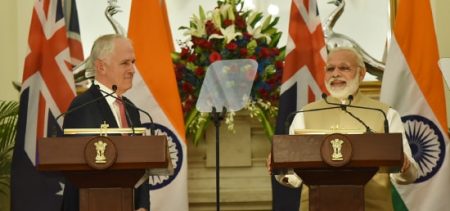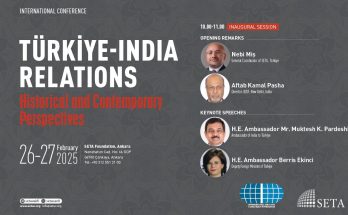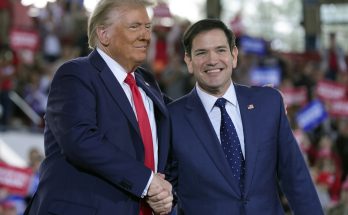
Blending cricket, curry and commerce, India and Australia have imparted an added traction to their growing strategic partnership by signing six pacts, including a crucial agreement to expand counter-terror cooperation, and agreed to revive stalled negotiations on a liberalized bilateral trade deal. The talks between India’s Prime Minister Narendra Modi and his Australian counterpart Malcolm Turnbull in New Delhi on April 10 have placed the relations between Australia and the world’s fastest growing major economy on a higher footing.
Combating Terror
Intensifying counter-terror cooperation topped the agenda. The two leaders said at a joint media appearance that the fight against terrorists, terror organisations and networks should identify, hold accountable and take strong measures against those who encourage, support and finance terror, provide sanctuary to terrorists and terror groups, and falsely extol their virtues. Noting that both the countries have been victims of terrorism, Mr Modi and Mr Turnbull said the inking of the MoU on cooperation in combating international terrorism and transnational organised crime will help both countries to address global and regional security threats. “Our strong and vibrant strategic partnership is of course important for the security and well-being of our societies. But, it is also a major factor for peace, stability and security in our region,” Mr Modi said. A joint statement issued after the talks stressed on the need for urgent measures to check and prevent the spread of terrorism and radicalisation and vowed to take concrete measures to step up cooperation and coordination among the law enforcement, intelligence and security organisations of the two countries.
Fast-tracking CECA: Work-in-Progress
 On the Comprehensive Economic Cooperation Agreement (CECA), Mr Turnbull said that “we had a very good discussion on the issue” but acknowledged that progress has not been as fast as either of us would have liked.” Under the circumstances, all that the two PMs could do was to ask negotiators on both sides to resume the talks soon and find a way out and list their priorities soon so that talks can move forward, amidst concerns in India over allowing farm exports from Australia and access to skilled workers to Down Under. These are the two main sticking points on the pact. Speaking earlier to Australian journalists, Mr Turnbull said, “We’ve got to be realistic about timing” for a bilateral deal with India. “It’s important to have an agreement that meets your requirements,” he stressed. Trade between Australia and India has doubled over the past decade to around $20 billion and Mr Turnbull said that was a fraction of what it could and should be.
On the Comprehensive Economic Cooperation Agreement (CECA), Mr Turnbull said that “we had a very good discussion on the issue” but acknowledged that progress has not been as fast as either of us would have liked.” Under the circumstances, all that the two PMs could do was to ask negotiators on both sides to resume the talks soon and find a way out and list their priorities soon so that talks can move forward, amidst concerns in India over allowing farm exports from Australia and access to skilled workers to Down Under. These are the two main sticking points on the pact. Speaking earlier to Australian journalists, Mr Turnbull said, “We’ve got to be realistic about timing” for a bilateral deal with India. “It’s important to have an agreement that meets your requirements,” he stressed. Trade between Australia and India has doubled over the past decade to around $20 billion and Mr Turnbull said that was a fraction of what it could and should be.
And even though the two sides agreed to a fresh round of discussions on CECA, the Australian leader made it clear that his priority was now the broader Regional Comprehensive Economic Partnership (RCEP), which has emerged as Canberra’s main opportunity to bolster its trade prospects after US President Donald Trump exited the Trans-Pacific Partnership. TPP sought to bring together the 10 members of Association of Southeast Asian Nations and six more countries, including India, with which ASEAN has free trade deals.
Regarding the entry of skilled Indian workers in Australia, Mr Turnbull said, “We see our temporary migration programme as being conducted in a very focused way, in Australia’s national interest. Our commitment is to ensure that, when jobs can be done by Australians, they are done by Australians,” he said. “When there is a genuine shortage of skills, we can bring in skilled persons from overseas – a great many of those have come from India,” he added.
Uranium for India
Mr Modi thanked his Australian guest for the passage of a legislation by Australian parliament with bi-partisan support paving way for the country to export uranium to India. Mr Turnbull, on his part, said he was looking forward to starting the supply “as soon as possible”. Australia is one of the countries with which India signed a civil nuclear deal even though New Delhi has not signed the Comprehensive Test Ban Treaty it considers discriminatory. Both the prime ministers anticipated that commercial exports of Australian uranium could begin soon, opening up a new avenue for Australia to support India’s energy requirement.
Indo-Pacific Connect

The two sides also discussed deepening of maritime security cooperation in the Indo-Pacific region. “We, therefore, agree on the need for a secure and rule- based Indo-Pacific. We are also aware that in this globalised world, challenges like terrorism and cyber security extend beyond the boundaries of our region and, therefore, require global strategy and solutions,” Mr Modi said.
Mr Turnbull heaped praises on the Indian leader, saying “Prime Minister Narendra Modi is leading this most remarkable nation on an extraordinary journey of growth and development. The achievements of India are the admiration of the world.” Australia is looking forward to deepen its bond with India, he added.
(Pallab Bhattacharya contributed inputs for this article)
Author Profile
- India Writes Network (www.indiawrites.org) is an emerging think tank and a media-publishing company focused on international affairs & the India Story. Centre for Global India Insights is the research arm of India Writes Network. To subscribe to India and the World, write to editor@indiawrites.org. A venture of TGII Media Private Limited, a leading media, publishing and consultancy company, IWN has carved a niche for balanced and exhaustive reporting and analysis of international affairs. Eminent personalities, politicians, diplomats, authors, strategy gurus and news-makers have contributed to India Writes Network, as also “India and the World,” a magazine focused on global affairs.
Latest entries
 India and the WorldApril 2, 2025Mapping Next Steps for BIMSTEC
India and the WorldApril 2, 2025Mapping Next Steps for BIMSTEC India and the WorldApril 1, 2025BIMSTEC to intensify counter-terror cooperation, forge ties with ASEAN, IORA
India and the WorldApril 1, 2025BIMSTEC to intensify counter-terror cooperation, forge ties with ASEAN, IORA India and the WorldMarch 15, 2025Trump 2.0: Rewriting the Script for US-India Relations
India and the WorldMarch 15, 2025Trump 2.0: Rewriting the Script for US-India Relations India and the WorldMarch 12, 2025US-India Defence Ties Set for Upgrade
India and the WorldMarch 12, 2025US-India Defence Ties Set for Upgrade







